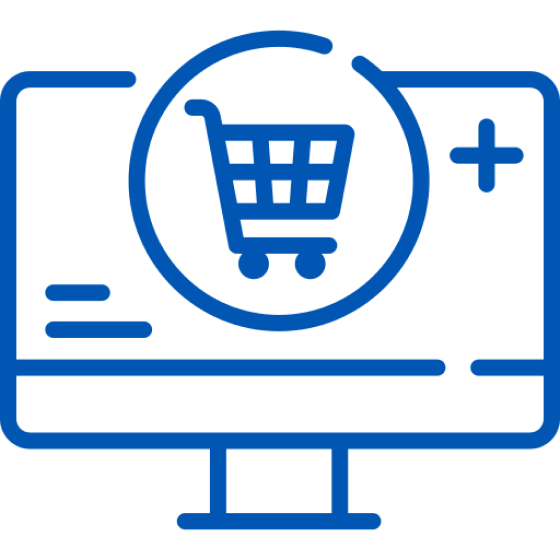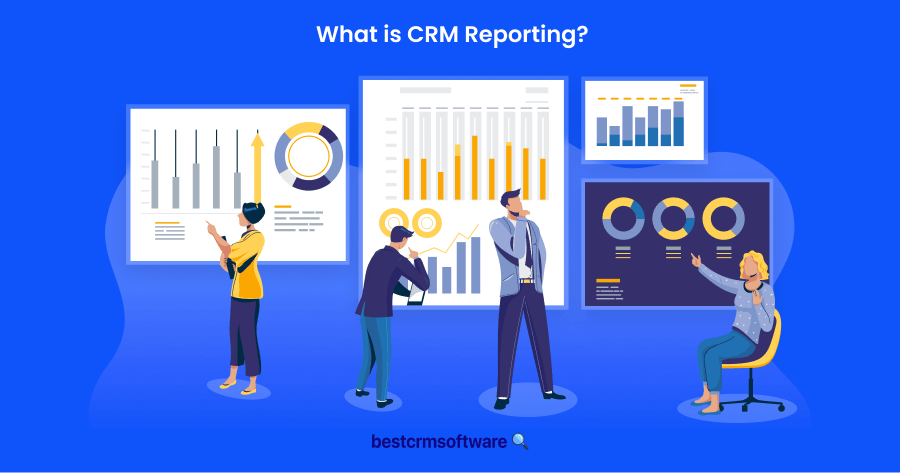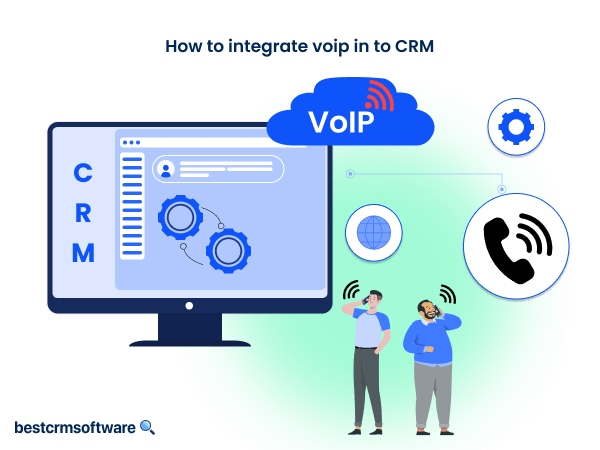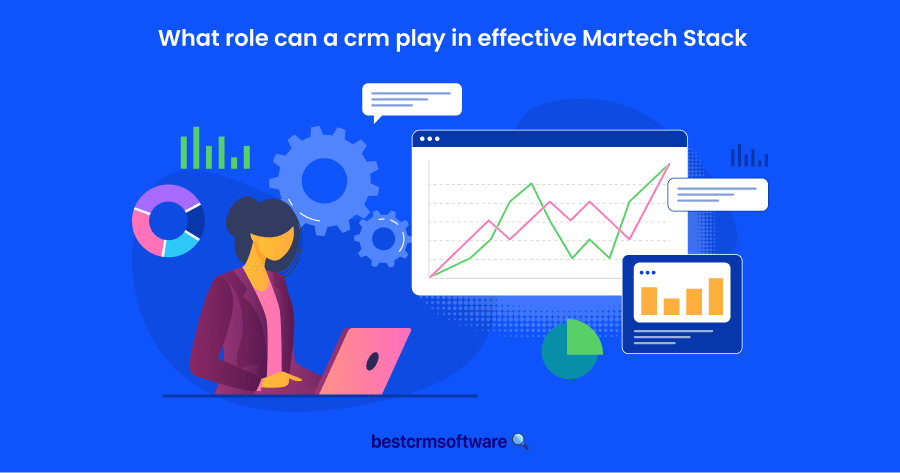
Best CRM Software for Wholesalers
Wholesalers CRM in a Nutshell
A CRM manager’s role is to guarantee that the organization works at peak engagement. I have to ensure that my customers are satisfied, and I must be able to report and analyze data efficiently. Therefore, I have examined, assessed, and critiqued leading CRM software for wholesalers. I aimed to identify the premier tools that bolster project and team management and control. The following CRM software made it to my top ten list.
10 Best CRM Software Wholesalers Shortlist
- SAP – Best CRM for a wide range of integrated solutions for complex supply chains
- Oracle NetSuite – Best CRM for global, midsize, and large wholesalers
- Syspro CRM – Best CRM for distributors and manufacturers
- Pipeline – Best CRM for sales-focused wholesale collaboration
- Odoo – Best CRM for control through open-source software.
- Infor – Best CRM for extensive enterprise-level operations
- Spotio – Best CRM for field-sales collaboration
- Nimble – Best CRM for prominent sales marketing
- Maximizer – Best CRM for sales lead
- Podio – Best CRM for increasing workflow
In the dynamic $8.1 trillion wholesale industry, choosing the right CRM is crucial for maintaining competitiveness and driving growth. Wholesalers significantly contribute to the U.S. economy. Therefore, the best CRM software for 2024 aids wholesaler’s behind-the-scenes intricacies while they take care of making deals. For wholesalers, CRM is tailored to increase operational efficiency and strengthen customer relationships.
Why You Need CRM for Wholesaling
Effective management of both internal and external relationships is indispensable for wholesalers. Below are key reasons why implementing a CRM system is essential for maintaining efficiency and achieving success in the wholesale industry.
Complex Relationships Managed
Juggles the intricate relationships with manufacturers, distributors, and customers.
Internal Challenges Addressed
Tackles internal issues such as inventory management and the connecting of new technologies.
Streamlined Interactions
Simplifies management of external interactions, enhancing efficiency.
Boosted Productivity and Profitability
Improves internal processes, leading to increased productivity and profits.
Centralized Information
Consolidates essential information, making your business more adaptable and efficient.
The Top 10 Best CRM Solutions for Wholesalers

Why I Like It
SAP offers a comprehensive suite of solutions that address wholesalers’ multifaceted needs. This CRM integrates critical business functions into one efficient platform, including advanced supply chain planning and execution, sophisticated procurement, and sales strategies. It provides real-time data and analytics that help with apt decision-making and response to market changes.
Most Important Wholesale Features
Supply Chain Management
Next-generation planning and real-time demand networks improve responsiveness and efficiency in supply chain operations.
Procurement Excellence
Tools for managing everything from sources and contracts to invoices and payables.
Sales and Marketing Automation
Automates sales processes and empowers the mobile sales force.
Service Excellence
Delivers an omnichannel customer service experience for high customer satisfaction and loyalty
Pros
- Comprehensive integration of business operations.
- Advanced real-time analytics for better decision-making.
- Eloquent supply chain and procurement management capabilities.
- Automated sales and customer service features.
- Mobile and cloud-based CRM solutions enhance accessibility and flexibility.
Cons
- The complexity of the system may require a steep learning curve.
- High implementation costs.
- Merging with existing non-SAP systems can be challenging.

Why I Like It
NetSuite CRM is another all-inclusive management software that manages the entire customer lifecycle, from lead to renewal. It integrates easily with commerce systems. This CRM software increases customer experience by maintaining a unified view of customer preferences and interaction across all touchpoints. It supported consistent and personalized customer engagements, which are vital for managing complex customer and partner relationships.
Most Important Wholesale Features
Sales Force Automation (SFA)
Streamlines sales processes, including opportunity, upsell, quote management, sales forecasting, order management, and commission tracking.
Customer Service Management
Offers a 360-degree view of customers, improving service consistency and efficient issue resolution.
Marketing Automation
Automates campaign execution across multiple channels, aligning with sales processes.
Partner Relationship Management
Manages partner channels, facilitating better collaboration and communication.
Integrated ERP Features
This solution combines CRM with ERP capabilities for a composite approach to managing all customer and business operations data.
Pros
- NetSuite CRM consolidates interactions from all channels into a unified customer view, enhancing business visibility.
- Real-time data access boosts sales performance by streamlining processes and improving forecast accuracy.
- Flawless synchronizing with existing NetSuite ERP solutions provides a comprehensive view of operations, aiding decision-making.
- Mobile access allows sales and service teams to manage customer interactions on the go.
Cons
- NetSuite CRM is costly for many small to medium-sized businesses due to its extensive features.
- The interface isn’t straightforward, necessitating substantial training, onboarding, and ongoing support.
- Customizing the system demands a considerable time investment.
- There are extra charges for technical support.

Why I Like It
CRM for SYSPRO is designed for manufacturers and distributors who prioritize long-lasting relationships, efficiency, and quality to stay competitive. This CRM system gathers complete data from every customer interaction. Its 360-degree view is holistic and helps build a customer-centric organization. The CRM is compatible with SYSPRO’s ERP system, which improves data flow and accuracy throughout the customer lifecycle.
Most Important Wholesale Features
Comprehensive Customer Lifecycle Management
Manages the entire customer journey from lead to post-sale support.
ERP Integration
It incorporates SYSPRO’s ERP solutions well, providing consistent and reliable data.
Enhanced Service Quality Management
Includes features for managing complaints, returns, repairs, and warranties, which are critical for maintaining high service standards.
Advanced Sales and Marketing Tools
Equips teams with tools for effective pipeline management, campaign tracking, and lead generation to boost sales and marketing efforts.
Pros
- It provides top-tier support with quick and regular updates.
- The system pulls together extensive customer data with a consolidated view.
- The software is reliable, with multiple avenues for troubleshooting bugs, errors, or technical problems.
Cons
- The system may be too complex for smaller companies.
- Navigating through the software can be challenging and doesn’t offer direct links to related records.
- The cost of deployment and ongoing maintenance might be high.
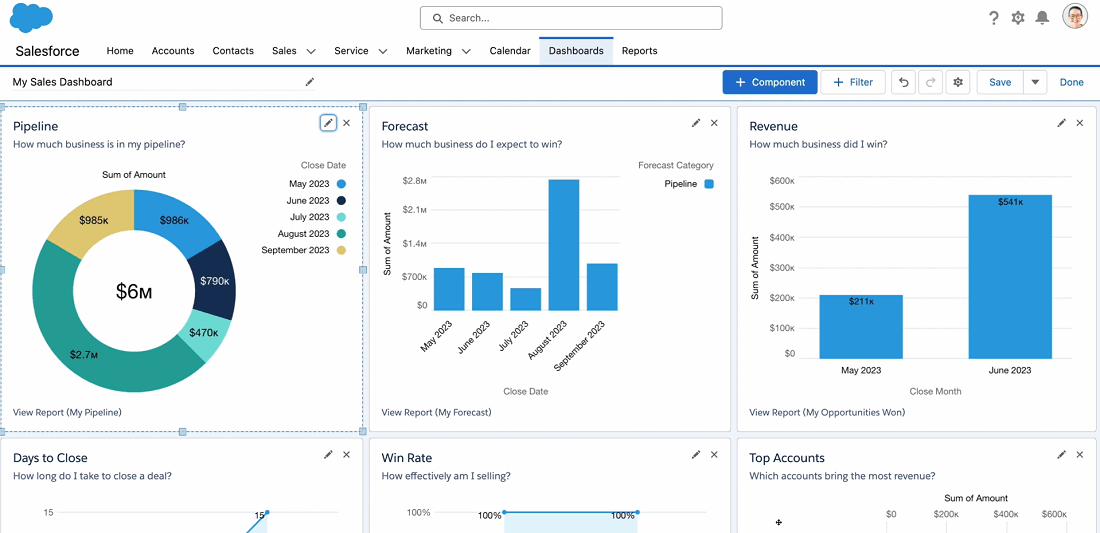
Why I Like It
Pipeline CRM is for sales-focused wholesalers and distributors. This CRM system emphasizes customer relationships to stay competitive. It simplifies customer management, sales tracking, and workflow optimization. Every team member stays informed with centralized updates on conversations, deal progression, and communications.
Most Important Wholesale Features
Centralized Communication
Updates all staff in real-time so everyone is on the same page.
Customization Options
Adapts to the specific needs of each wholesaler or distributor.
Comprehensive Sales Tools
Manages leads through to deal closure, increasing customer acquisition.
Pros
- Pipeline CRM is both scalable and affordable.
- It automates extensive sales management tasks, boosting efficiency.
- The CRM works well with various software, including Microsoft and Google Apps.
- Known for best-in-class customer support, users receive prompt and effective help.
Cons
- Lacks on-premise options.
- Best suited for small and medium-sized businesses only.

Why I Like It
Odoo positions itself as a versatile platform, boasting an entire ecosystem of consolidated, open-source apps designed to enhance business operations across various domains such as sales, marketing, finance, and more. Its strength lies in its extensive suite of apps that are simple to use and tightly coupled within the Odoo environment.
Most Important Wholesale Features
Ecosystem of Apps
Odoo offers a full range of business apps, including sales, marketing, inventory, and HR, all designed to work together.
Customization and Control
Being open-source, Odoo gives organizations complete control to customize functionalities as needed.
Integrated Communication Tools
Syncs with communication platforms like email, live chat, SMS, and VoIP, centralizing all communications.
Pros
- Your first app with Odoo is free, and it includes hosting and support.
- Subsequent apps are billed competitively, making Odoo affordable as businesses scale.
- The platform’s integration with its own apps for blended operation efficiency and data accuracy.
Cons
- It lacks native integration with third-party software.
- The platform’s open-source nature means it may start as barebones, necessitating a development team for full functionality.

Why I Like It
Infor CRM is well-suited for major, enterprise-level wholesalers. It offers robust features like contact management, lead segmentation, extensive sales and marketing automation, and real-time analytics and reporting. These tools help users deeply understand their customers and make informed decisions to serve them better.
Most Important Wholesale Features
Advanced Automation
Accelerates productivity and enhances competitiveness by automating key distribution processes.
Real-time Analytics and Reports
Provides up-to-date insights that aid in planning and making decisions.
Comprehensive Contact and Communication Management
Manages all customer interactions through a centralized platform, facilitating improved customer relationships.
Pros
- Infor CRM excels in collaboration across different teams and geographical locations.
- The system includes efficient ticketing and support features that streamline customer service processes.
- Its mobile app enhances accessibility and convenience for on-the-go management.
Cons
- The system can be cumbersome and complex, requiring a more extended period for staff to become proficient.
- It might involve many clicks to perform simple tasks, slowing operations down.
- Measuring the return on investment for collaboration features can be challenging.

Why I Like It
SPOTIO stands out as a comprehensive CRM designed specifically for field sales teams in the wholesale sector. It streamlines field operations by automating routine administrative tasks, optimizing travel routes, and facilitating advanced lead generation. The platform enhances real-time communication between reps and managers, boosting productivity and providing insights into sales activities.
Most Important Wholesale Features
Lead Generation and Management
SPOTIO excels in capturing and nurturing leads directly from the field.
Performance Tracking and Reporting
Offers detailed insights into individual rep performances and generates custom reports for strategic analysis.
Communication and Workflow Integration
Seamlessly coordinates with existing tools through native connections or via Zapier for effective workflow.
Pros
- Reduces manual tasks by automating administrative functions and optimizing sales routes.
- Provides thorough lead management and detailed performance tracking.
- Enhances workflow through solid integrations with other business tools.
Cons
- Occasional data loss and issues following system updates.
- Initial learning curve due to feature complexity.
- Management of data can be challenging, especially with high activity levels.

Why I Like It
Nimble CRM is tailored for businesses of all sizes, from solo entrepreneurs to large sales and marketing teams. It integrates seamlessly into daily workflows, particularly within email environments like Outlook and Gmail. Nimble excels in relationship management, offering features like prospecting, data management, communication, and reporting. Additionally, it includes tools for order, inventory, warehouse, and shipping management.
Most Important Wholesale Features
Integrated Relationship Management
Nimble places a strong emphasis on nurturing relationships rather than merely tracking transactions.
Social and Business Data Enrichment
Automatically enriches contact information with data pulled from social media and business databases.
Expansive Sales Tools
Offers customizable sales pipelines, detailed reporting, and automation features to streamline various business processes.
Pros
- Strengthens contact management by emphasizing personal and productive interactions.
- Facilitates multi-platform communication through effective social media and email integration.
- Strongly syncs with Microsoft and Google suites, enhancing utility for users within these ecosystems.
Cons
- Some users find the email formatting tools cumbersome and not intuitive, complicating marketing communications.
- The feature-rich platform may overwhelm new users, potentially extending the learning period to capitalize on its capabilities thoroughly.

Why I Like It
Maximizer CRM is developed explicitly for sales leaders looking to enhance their sales strategies in wholesale distribution. It provides a focused platform for managing leads, retaining customers, and boosting sales performance. With powerful AI features and extensive integration options, Maximizer simplifies day-to-day operations backed by insightful CRM data.
Most Important Wholesale Features
AI-Powered Sales Tools
Utilizes advanced AI to guide sales professionals through each stage of the sales cycle.
Dynamic Sales Pipeline
Offers flexibility in customizing the sales process to fit specific methodologies or personal preferences.
Sweeping Analytics
Tracks performance with detailed reports and analytics, providing clear visibility into team achievements and areas for improvement.
Pros
- Offers excellent value with across-the-board tools for marketing, sales tracking, and customer management.
- It features powerful Outlook integration, directly allowing seamless correspondence and newsletter distribution through CRM.
- Provides an intuitive interface for managing contacts, setting follow-ups, and monitoring sales opportunities.
Cons
- Some users find the system requires considerable data entry and customization to tailor it to their specific operational flows.
- Its complex navigation and multiple tabs can overwhelm the interface, which may lead to a steep learning curve.
- The aesthetic and functionality are outdated, and older data can be challenging to track and utilize effectively.

Why I Like It
Podio is a vigorous platform designed to enhance sales workflows by streamlining various processes. It features a suite of tools, including a meeting scheduler, a cloud-based phone system, and a platform for employee engagement, similar to social media. With its visual reporting capabilities and customization, Podio adapts to specific wholesaling needs, making it an excellent choice for improving day-to-day operations and team collaboration.
Most Important Wholesale Features
Customizable Workflows
Podio offers extensive customization options that allow you to tailor the app to meet your exact specifications.
Integrated Communication Tools
Includes a cloud-based phone system and options for seamless integration with popular file-sharing and productivity tools.
Advanced Reporting
Provides visual reports that offer insights into your sales and operational data, helping you make informed decisions.
Pros
- Podio allows for high levels of customization, making it adaptable to a wide range of wholesale business needs.
- The platform’s clean interface is user-friendly and supports a clutter-free work environment.
- Access to basic features is free, allowing businesses to grow on the platform without initial investment.
Cons
- A lack of ongoing feature development may raise concerns about the platform’s longevity.
- The platform sometimes experiences significant downtime and slow page loading times, hindering productivity.
- Reporting capabilities are limited, especially when generating reports that pull data across multiple applications.
Considerations for Small Companies vs. Large Companies
The competitive wholesale business needs effective CRM software regardless of its size. It helps shape growth, retain customers, and make strategic decisions. Therefore, CRM systems must consider the needs of both small companies and large-scale enterprises.
Small Companies and Startups
For these businesses, affordability is a critical consideration. Startups require budget-friendly CRM systems. It’s for guaranteeing that limited resources are used efficiently without compromising on essential CRM functionalities such as contact management, lead tracking, and customer interaction histories.
Scalability is also vital for small companies. The CRM solution should grow smoothly with the business, adapting to expanding customer bases and increasingly complex operations without necessitating a system overhaul.
Customization is another crucial factor for small enterprises, where the ability to tailor the CRM to specific business processes can lead to significant competitive advantages. However, these customization options shouldn’t require extensive IT expertise because many small businesses don’t have large technical teams.
Large Enterprises
These entities face the complexity of managing extensive customer interactions across various channels and departments. Thus, large companies need robust CRM systems that offer advanced integration capabilities with existing enterprise applications like ERP and BI tools, ensuring data consistency and workflow continuity. Customization at this scale involves deeper reconfigurability to align with intricate, industry-specific workflows and multinational operations.
Large enterprises benefit from CRM systems with advanced analytics and reporting capabilities to handle vast amounts of data. These features provide actionable insights that drive strategic decisions and improve customer engagement. The CRM should support detailed segmentation, performance tracking, and predictive analytics to fine-tune marketing and sales strategies across diverse market segments.











